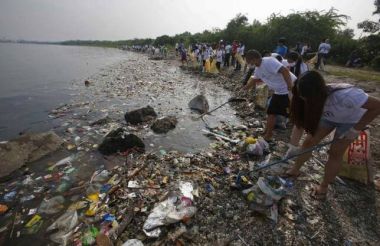Looming nightmare: More plastics than fish in world's oceans likely by 2050

The Earth is facing a deep problem in its oceans, which cover some 75 percent of our planet's surface.
A study produced by the Ellen MacArthur Foundation and published by the World Economic Forum on Tuesday warned that pieces of plastics floating in the ocean may outnumber fish in the marine environment as early as the year 2050.
The same study revealed that three in every 10 plastic products we currently use are not properly disposed and end up in natural ecosystems, including oceans.
In absolute numbers, this will mean that 8 million tons of plastic end up in the ocean annually. To make this easier to visualise, think of mankind dumping a truckful of plastic garbage into the ocean every minute.
Based on this figure, it can be extrapolated that humans will dump two trucks of plastic rubbish into the ocean every minute by 2030, and then four trucks per minute come 2050.
At this point, more garbage will be in the ocean than actual fish whose lives depend on the marine environment.
The main problem is that most plastic packages are used only once and are not recycled, according to Dianna Cohen, CEO of the Plastic Pollution Coalition.
"One of the biggest problems [to] focus on is single use and disposable plastic. There is no system in place that helps take these [plastic] materials back [after use]," Cohen said in an interview with Al Jazeera.
"It impacts the entire ecosystem in the ocean. If you come from a country that gets its primary livelihood or protein source from the ocean, then the fish you may count on to eat is ingesting plastic, getting entangled in it, and dying from having stomachs full of it," she added.
Cohen urged governments around the world to take steps to reduce plastic waste, particularly by requiring producers to take back plastics used in packaging.
"We all have the power to do something to reduce the amount of plastic we use on a daily basis," she said.
The problem in the marine ecosystem is compounded even more by the fact that human beings are catching more fish over the past 60 years than we realised, according to a separate report published in Nature Communications.











